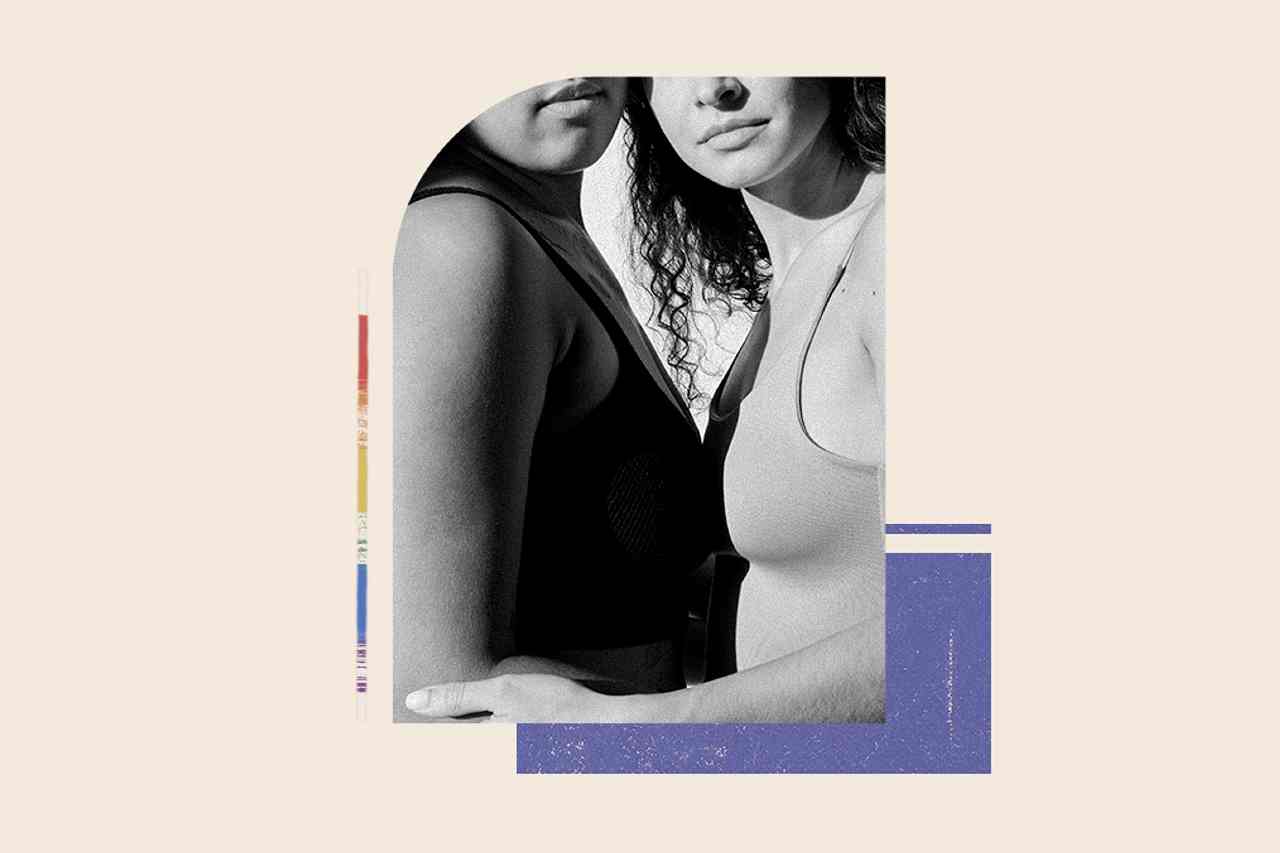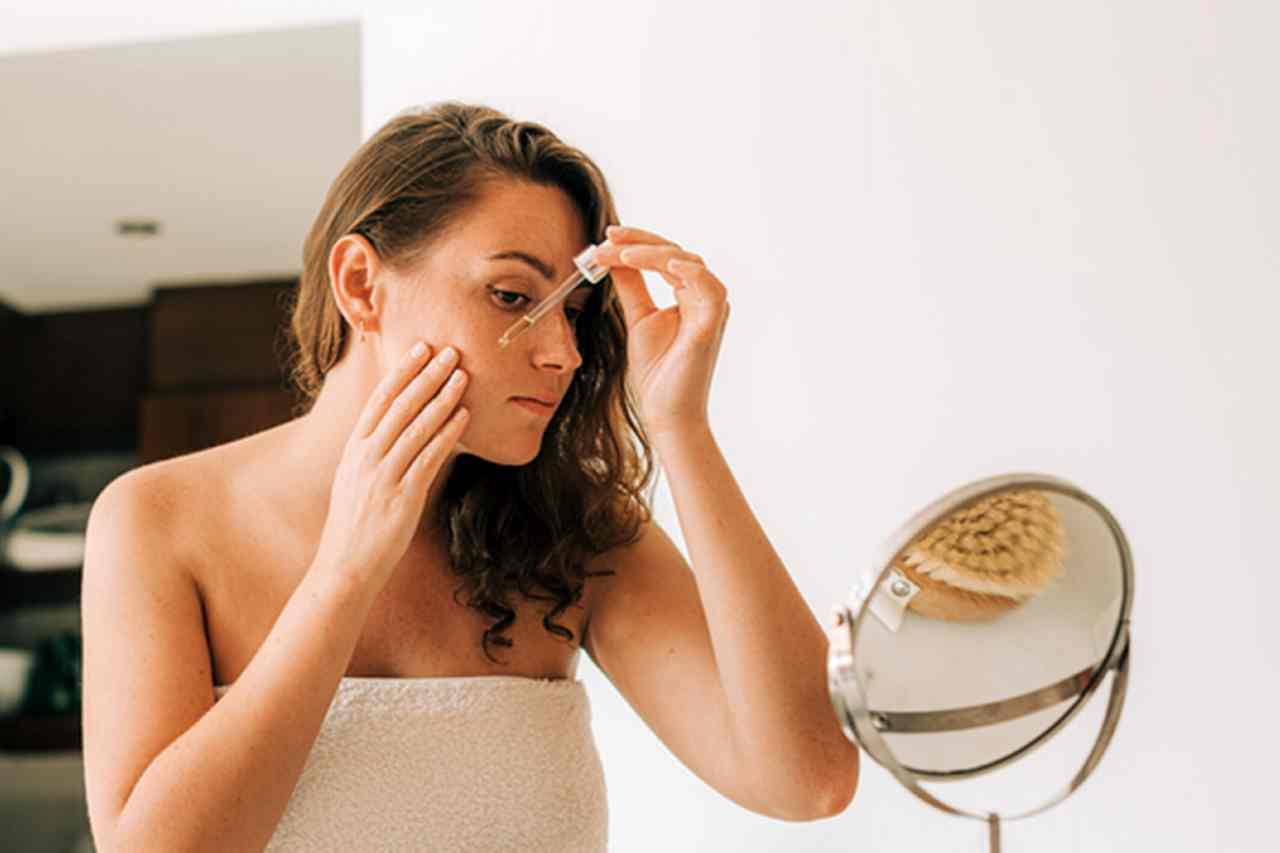I am a first-generation, cisgender, Mexican American, and I am additionally bisexual; I am brazenly bisexual with mates (together with my little sister), my roommates, at work, and on courting apps—however I’ve but to come back out to my mother and father, as a result of I am scared they will love me much less. Rising up in my household, which has been firmly Catholic for generations, meant that heteronormativity—or the concept that a “regular” sexual identification is being attracted solely to the “reverse” gender—was the established order in my family. (It could be years earlier than I discovered that there are a variety of gender identities and types of sexuality.)
So, you may think about my confusion after I had an eerily comparable expertise to Rosa’s as I watched Lizzie McGuire on the Disney Channel as an 8 12 months previous. I believed, Gordo? Cute. Miranda? Additionally cute! Frankly, these emotions scared the residing crap out of me out on the time.
Nancy Paloma Collins, LMFT, a therapist and first-generation Mexican American, says many Latinx individuals like me develop up in households the place the expectation is one among heteronormativity. However to somebody whose sense of identification would not match into that mildew, feeling the necessity to reside as much as these expectations may be crushing and result in emotions of inadequacy and failure. That was definitely the case for me, as I got here to know my very own identification as a bisexual girl.
For thus lengthy, I used to be afraid to simply accept—not to mention have fun—my sexuality out of fear for the way my speedy household and better Mexican American household would react.
For many of my life, I lived with my mother’s youthful brother, who’s been brazenly homosexual ever since I can bear in mind. Although there isn’t any scarcity of affection for him in my household, my mother and father would typically say that they “did not agree together with his ‘life-style.'” Feedback like which might be what made me tremble for years on the considered popping out to them. For thus lengthy, I used to be afraid to simply accept—not to mention have fun—my sexuality out of fear for the way my speedy household and better Mexican American household would react. I have never but discovered what that may appear to be, as a result of I am nonetheless petrified of what my mother and father will say after I come out to them. This worry could also be attributed to my internalized homophobia, and at age 28—as a mostly-out bisexual girl—I lastly determined to unpack that.
What’s internalized homophobia?
As is usually the case with implicit biases, many people aren’t even conscious that we’ve internalized homophobic attitudes. You would possibly suppose that you simply’re progressive (and also you would possibly truly be), but it surely’s additionally possible that you simply harbor at the very least some homophobic attitudes due to the heteronormative presumption in mainstream society. We’re bombarded with messaging that tells us being straight is the one proper option to be—which is bolstered via the shortage of queer illustration in media, together with motion pictures, music, commercials, and tv. (Examples just like the aforementioned scene in Brooklyn 9-9 must be regular, not noteworthy.) Finally, with a purpose to unpack and overcome internalized homophobia, introspection and reflection are key.
Neighborhood organizer and medical social employee Ronnie Véliz, MSW, says that somebody who has internalized homophobia has discovered damaging stereotypes or myths about queer individuals (although not essentially deliberately) and holds them to be true. This misinformation—which might have an effect on anybody, no matter gender identification or sexual orientation—can come from their household, neighborhood, insurance policies, information, and pop-culture.
Somebody who has internalized homophobia has discovered damaging stereotypes or myths about queer individuals (although not essentially deliberately) and holds them to be true.
Moreover, it could actually imply various things. Whereas many of us would possibly boil down homophobia to a “worry of homosexual individuals,” that definition is lacking important nuance and texture. Encyclopædia Britannica will get to that variance extra clearly in its definition of the time period: “culturally produced worry of or prejudice in opposition to homosexuals…. Though the suffix phobia typically designates an irrational worry, within the case of homophobia, the phrase as a substitute refers to an attitudinal disposition starting from delicate dislike to abhorrence of people who find themselves sexually or romantically interested in people of the identical intercourse.”
When you realize there are individuals on the market who would possibly “abhor” your very existence due to your identification, it could actually make popping out fairly rattling scary. Realizing that my internalized homophobia as a bisexual girl is probably going the guiding motive for my reticence to come back out to my mother and father, I sought out the assistance of specialists to determine methods for me to unpack that.
3 methods for unpacking my internalized homophobia and celebrating my bisexual identification
1. Create a timeline that particulars what I’ve heard about people who find themselves bisexual
This timeline-creating train, Véliz says, might help me work out after I began growing internalized homophobia—which, in flip, might help me dismantle the maintain it has on my life. That is as a result of the method permits me to exchange the emotions with new, real-life experiences.
Although from a younger age I discovered myself interested in others no matter the place they fell on the sexuality and gender spectrum (bisexuality is usually incorrectly topic to the gender binary), I typically thought to myself, However I may by no means be in a relationship with anybody who is not male. That’s due to what I’d heard about bisexual individuals: “It’s a section!” “You’ll find yourself with a person, although!” “You’re simply making an attempt to be edgy!”
I noticed that the extra I heard these issues, the extra I began believing them for myself. A part of letting go of deep-seated untruths required me to remind myself that these will not be my beliefs—they have been simply imposed on me.
2. Define a household tree to recall what your loved ones members have mentioned about people who find themselves bisexual
Rising up, I might typically heard my mother and father’ disapproval of my uncle’s “life-style,” and this led me to imagine that my bisexuality would even be lower than ideally suited in my mother and father’ eyes. Within the uncommon occasion that we would see a homosexual couple in a telenovela, my mother and father would look away or say one thing like, “Ay, porque tienen que enseñar eso?” (“Why have they got to point out that?”) That did not essentially make me really feel like they’d be pleased with me for being bisexual.
When my youthful sister got here out as bisexual earlier than me, although, I began to understand that it was okay to not be straight. Earlier than my sister got here out, I nonetheless noticed myself as heterosexual and typically, after I was comfy sufficient with these round me, I’d say I used to be “bi-curious,” however for thus lengthy, I wasn’t comfy admitting to myself or others that I’m, actually, bisexual. “All of us who’re locally, sooner or later—we query ourselves,” says Collins. “We’d carry some internalized homophobia, however that comes from the skin and not likely from inside—due to society, due to a lot that we undergo, as a result of we’re pushed apart, and since we’re not supplied with equal rights.”
As I establish the attitudes my relations maintain towards individuals who aren’t straight, I am checking out the messages that make me really feel like there’s one thing flawed with me for being interested in a couple of gender, says Véliz. From there, I can unpack these statements to remind myself that what others suppose or really feel has nothing to do with me being my most genuine self.
3. Discover individuals you look as much as who share your sexuality
The important thing to utilizing this technique to fight your internalized homophobia, Véliz says, is to seek out somebody whose pursuits or profession are aligned with your personal. For me, Véliz suggests discovering a bisexual one who shares another elements of my identification with me, like being Latinx, a lady, and somebody who works in media.
“To know that somebody on the market has paved the pathway so that you can be who you’re, or at the very least to have the heart to combat on your understanding of your personal self, may be very empowering for lots of people,” says Véliz. To that finish, I recognized Cuban American author, reporter, and self-proclaimed “ethereal bisexual” (per her former Instagram bio) Suzy Exposito as high of my record.
Previously a Latin music author at Rolling Stone and now a music reporter at The Los Angeles Occasions, Exposito—who’s brazenly bisexual—is a guiding gentle for me as a Latinx, bisexual author. I have been following Exposito since Could 2020, the identical month her Rolling Stone cowl story on reggeatón famous person Unhealthy Bunny was printed. Throughout that point, I hadn’t been capable of get a full-time writing job, and easily seeing Exposito, a bisexual Latina like me, gave me hope that there was place for me on this trade.
I am nonetheless engaged on externally celebrating my sexuality with everybody in my life. However personally accepting it’s changing into simpler as I unravel the internalized homophobia I’ve clung to for thus lengthy. Although I have never but come out to my mother, dad, or uncle, my final objective as I unpack my internalized homophobia is reminding myself that my bisexuality will not make them love me much less after I do high quality the power to have that dialog.
Oh hello! You appear to be somebody who loves free exercises, reductions for cutting-edge wellness manufacturers, and unique Nicely+Good content material. Join Nicely+, our on-line group of wellness insiders, and unlock your rewards immediately.







